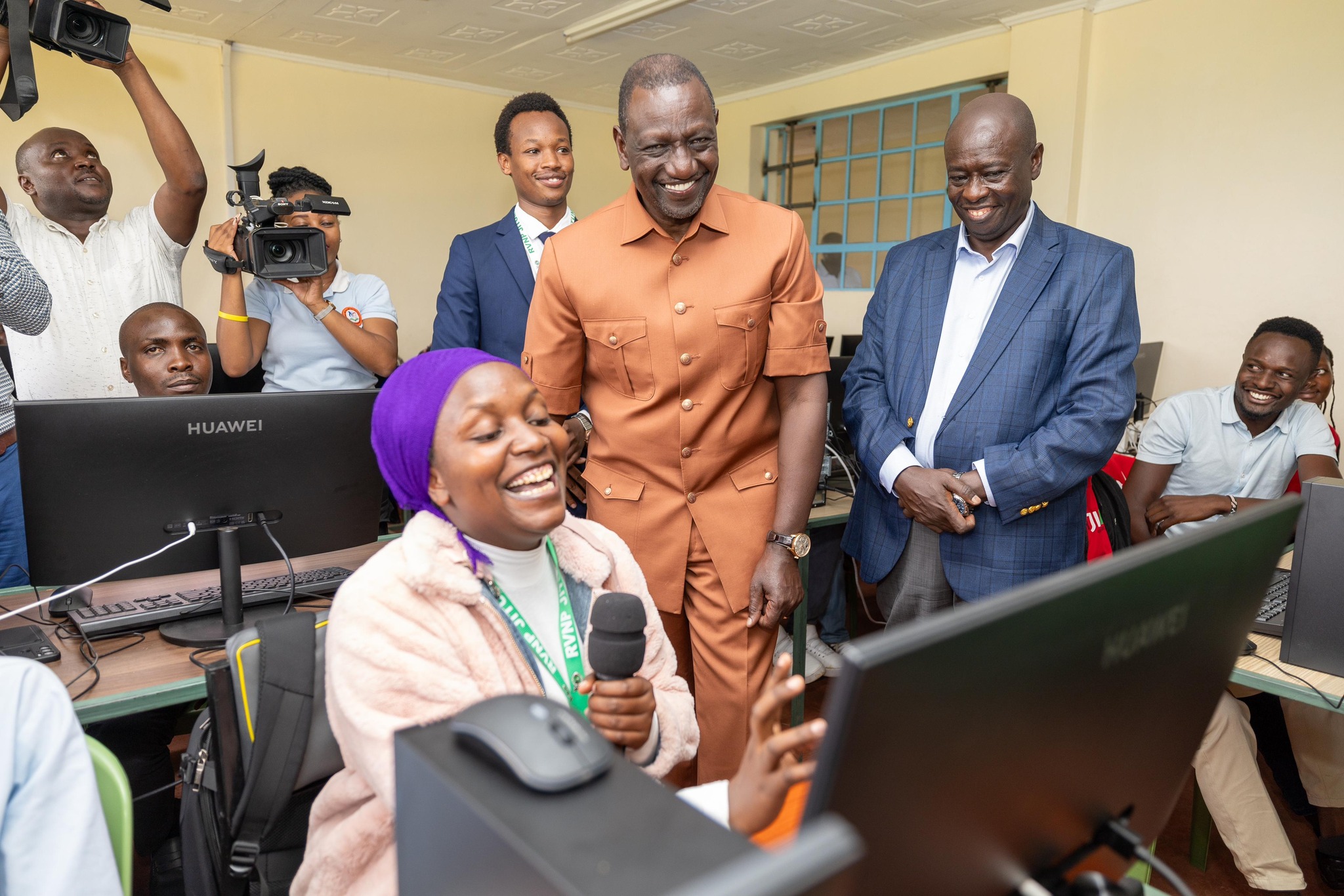Ruto launched a public tirade against American NGO Ford Foundation, which has sponsored government politicians on trips and seminars, of funding the protests seen in Kenya recently. The NGO later denied claims it was finding the unrest in Kenya
By THEDISPATCH.DIGITAL REPORTER
Pro-government bloggers’ attempts to deflect attention from the public confidence crisis affecting the William Ruto regime has evolved into an official government conspiracy, accusing a foreign NGO of financing the recent unrest in Kenya.
Addressing the public in Nakuru, President Ruto accused the Ford Foundation, an American NGO that aims to drive social change and justice worldwide, of financing over 40 NGOs to fuel the recent protests in Kenya. These allegations, which started on social media driven by pro-government bloggers, suggested that prominent activists like Boniface Mwangi and the youthful Hanifa were paid millions of shillings to coordinate the protests, which occurred across the country.
Speaking in Nakuru, accompanied by politicians who had resurfaced after going into hibernation at the height of the protests, a buoyant Ruto said, “I want to call out those who are behind the anarchy in Kenya…mimi nataka kuuliza watu wa Ford Foundation hiyo pesa wanatoa ifanye kazi gani? Mnataka watu watununulie vijana wafanye fujo katika Kenya?”
The Ford Foundation, on its website, declares that it is “disrupting systems to advance social justice” because “We believe in the inherent dignity of all people and that inequality is the defining challenge of our time.” The Foundation supports education programmes and social services, which have benefitted some politicians in Kenya’s ruling class.
Blaming foreign bodies, especially NGOs, was common during the Daniel Moi years, when protests were often attributed to “foreign masters” alleged to be fanning instability in Kenya. In the 1980s, University of Nairobi students with radical tendencies, like Robert Wafula Buke, were victimised and jailed for suspected associations with Libya, which was believed to be funding African revolutions. Buke later revealed he had no ties with Libya and was victimized for accompanying a friend to the Libyan embassy.
While it is understandable why foreign governments might fund instability in resource-rich Congo, it is unclear why a foreign power, especially America, would want instability in Kenya, which lacks significant mineral resources. This is especially curious given President Ruto’s recent state visit to the US, where he received military equipment donations and Kenya was granted NATO ally status.
Ironically, the Ford Foundation, which Ruto accused of sponsoring demonstrations, also sponsored a government Majority Whip and Deputy Leader to a trip to Geneva, Switzerland. Initially, government supporters claimed the protests were funded by Russia after Ruto condemned the Russian invasion of Ukraine at a peace summit in Switzerland. The switch to blaming the American foundation suggests either a lack of real information or an attempt to mislead the public.
Interestingly, as he made these claims, Ruto appeared upbeat and confident, unlike the subdued figure he had been as youth ranted against his government. He seemed to revert to his usual character of making promises he either had no intention of keeping or could not keep, engaging in political flattery without concern for the impact on his reputation.
Blaming the Ford Foundation appeared convenient, given that political activities in Kenya, both among the opposition and the government, are often funded by money stolen from the public purse, with little happening without financial backing.
In a statement issued later, the Ford Foundation denied it was funding the unrest in Kenya, saying, “we retain an ongoing commitment to supporting work of Kenya’s development and Kenya’s leadership on an African and global stage…” It added that “we do not fund or sponsor the recent protests against the Finance Bill and have a strictly non-partisan policy for all our grant-making.”
The Kenya government did no respond to this statement.
